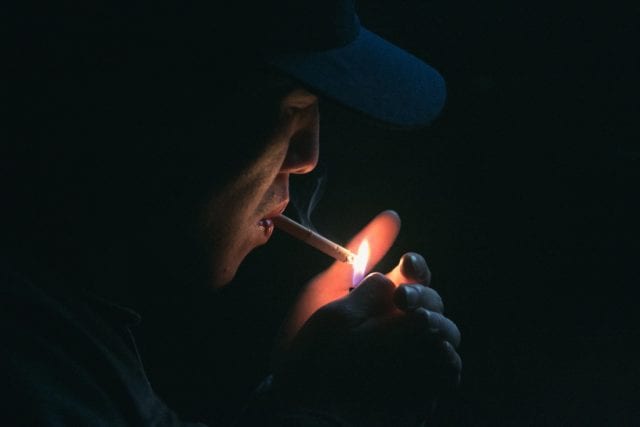Bad Habit vs. Addiction: What’s the Difference and 10 Tips to Overcome Each?
Two terms that have confused me for most of my life are “bad habits and addiction.” For a very long time, I didn’t know how the two were different. Every bad habit, I thought, was somehow an addiction. And like me, I guess, many of you have been misled about these two terms as well. The possible reason behind it may be that they often overlap and are used many people use the terms interchangeably.
However, there is a clear distinction between the two. If you have a habit that you can quit at any time and it is not out of control then it is just a bad habit and not an addiction. On the other hand, the things that get us a little bit high or give us a little burst of dopamine in our brain can cross over into an addiction and that is something to be really careful about.
Many bad habits can transform into addictive such as gambling, smoking, or any activity that can act as little stress relievers or add just a bit of excitement to your life. But how can we tell when a bad habit has become an addiction, and what can we do to overcome each?
Table of Contents
What is an Addiction?

Addiction has a very specific definition. It is a “compulsive dependency on a behavior or substance which results in some form of negative outcome over a period of time.” Addictions are things or actions that cause some amount of harm, which people want to stop doing but still can’t stop.
One of the things with addiction that is important to note, is that to meet the definition of ‘addiction’ it must be something that will interfere with your life in some negative way. Sometimes, there will be something that you do a lot and you might call it an addiction but if it is not interfering with your life then it is less of an addiction or dependence and more of a habit.
These 3C’s are much important to meet the criterion of addiction.
- Loss of Control: Something is getting out of hand and you are losing control over its occurrence. If you are doing it despite your desire to stop, it might be an addiction.
- Negative consequences: If something is causing you physical, psychological, mental, financial, or any kind of harm, it may be an addiction.
- Craving: If something has been taking up considerable room in your head and you have an irresistible urge to do it, it might be an addiction.
Note, you do not get addicted after experiencing anything once. Your brain needs time to build up the changes that cause addiction. Here are some physical and mental properties or characteristics of addictive behavior.
Physical Addiction
When the addiction is related to drugs and alcohol consumption, for example, you need more and more of the same substance to reach a certain mental and physical state and when you stop using the substance then you actually have withdrawal symptoms from it.
In such a case, your body or mind will fail to perform its functions properly after not getting that particular substance.
The human body is constantly trying to stay in equilibrium. So, when you take a drug for the first time, there will be slight changes in your body and brain. For example, you might start producing neuro-chemicals to compensate for the intake of the drug. Over time, your body will stop reacting to that drug or substance due to these changes building a tolerance against it. However, in this situation, your intake will need to increase for you to get the feeling you want.
The level of the physical addiction depends on the following factors—its speed can be less or more depending on
- The component you are consuming
- How you take it
- Frequency of that component’s use
Physical addiction affects your brain and central nervous system by bringing changes in it. Its treatment is necessary and if left ignored, the consequences can be life-threatening.
Psychological Addiction
Addiction can also be psychological in nature and it has a similar connotation where you need more and more of the same event but then the withdrawal symptoms are not necessarily physical in nature or they are not necessarily causing problems in terms of having any life-threatening events. This addiction is mostly related to the mind and emotions.
This addiction causes a strong mental attachment with the substance and when your body didn’t get it, your mind will push you towards the very substance or activity, and if you don’t get it, it may lead to an explosive outburst of emotions.
Is Having a Bad Habit the Same as an Addiction?

When you can’t break a bad habit, it can actually turn into an addiction. We can say that when a bad habit gets encoded into your brain and you are unable to stop even though it is resulting in negative outcomes, it becomes an addiction. In this situation, the brain supposes that abuse of a certain substance is beneficial. Simply put, the rewiring in the nervous system of the person makes them feel that they are doing right and they must keep doing it.
When you fail to get rid of a bad habit, it means you have become dependent on it. This dependency is an essential element of addiction. Your bad habit has become an addiction when this dependency begins impacting your everyday life negatively.
These are a few potential indicators that ensure that your bad habit has taken a shift towards an addiction.
- Lack of concentration
- Poor work performance
- Mood swings
- Bad impacts on relationships
- Disturbance in sleep pattern
- Financial issues
- Health deterioration
So, yes a long gone bad habit can be the same as an addiction and there are many situations where a person remains unaware and their bad habits converting into addictions.
How Can I Overcome a Bad Habit?

Breaking a bad habit is difficult but not impossible. If you are committed to recovering from it, you will. There are a few strategies that you need to adapt to overcome your bad habits.
- Treat yourself: Whenever you succeed at avoiding a bad habit, use that time or money to reward yourself. By rewarding yourself regularly, you will be inspired to keep at it.
- Analyze the habit: It is essential to understand the reason for your engagement in a certain habit. By monitoring your habit regularly, you can note down the important pattern changes.
- Introduce friction: If you want to break your bad habit, you have to break the loop and create friction in the form of a new habit. When you add more resistance between you and your habit, your brain automatically fails to remain attached to that habit. For example, if you have a bad habit of stopping for unhealthy food on the way home from work every day, you could take a different route with fewer restaurants, or take a healthy snack with you to eat in the car on the drive home.
- Keep yourself busy: The more you keep your brain busy with work and chores the more chances to get rid of any habit as the brain is already occupied. Keep yourself indulged in something you like.
- Perseverance: Stay committed while breaking your habit, as lapses in such situations are common. Observe these lapses as an opportunity to view any loophole in your pattern of breaking that habit.
How Can I Overcome an Addiction?
Overcoming an addiction is no easy feat and the repercussions of relapse can be devastating. However, there are some essential tips to overcome addiction.
- You must have a plan to overcome because the odds of staying good and somber decrease remarkably without a proper plan. You must have a solid plan to increase your odds of success.
- You must stick to the plan each day no matter whether you feel like it or not. Addiction distorts the reward circle of the brain, which is why addiction is referred to as an illness. With abstinence and time, your brain will recover which is why you must succumb to the idea, so you can prevent your brain from being manoeuvered.
- You must construct a support system of solemnity, which consists of celebrate recovery, sponsors, family, and friends, who support your thoughtfulness.
- You must gravely out into consideration the outpatient addiction treatment to know about the ailment of addiction and why abstinence is the treatment. Group therapy can create a sense of acceptance and inclusion.
- You must learn relapse deterrence skills by analyzing the triggers that build your cravings and enlarging a certain strategy for each trigger. You must also come about with skills for handling with cravings because you WILL encounter them.
Conclusion
Overlapping of bad habits and addiction, in very unexpected ways, is a common thing now. There is a very thin line between these two but in the initial stages, you can prevent the bad habit from turning into an addiction.
There are a lot of potential strategies and ways to recover from addiction and bad habits if you stick to your idea of breaking up with them. There are a lot of rehabilitation centers across the globe that are encouraging addicts and how they can overcome the withdrawal symptoms by recommending different strategies to them.
After receiving his undergraduate degree in psychology, Scott went on to work as a teacher and educational counselor while working towards his master’s degree. He has spent several years working with children and adults and has personal experience with Attention Deficit Hyperactive Disorder, Dyslexia, and Depression.